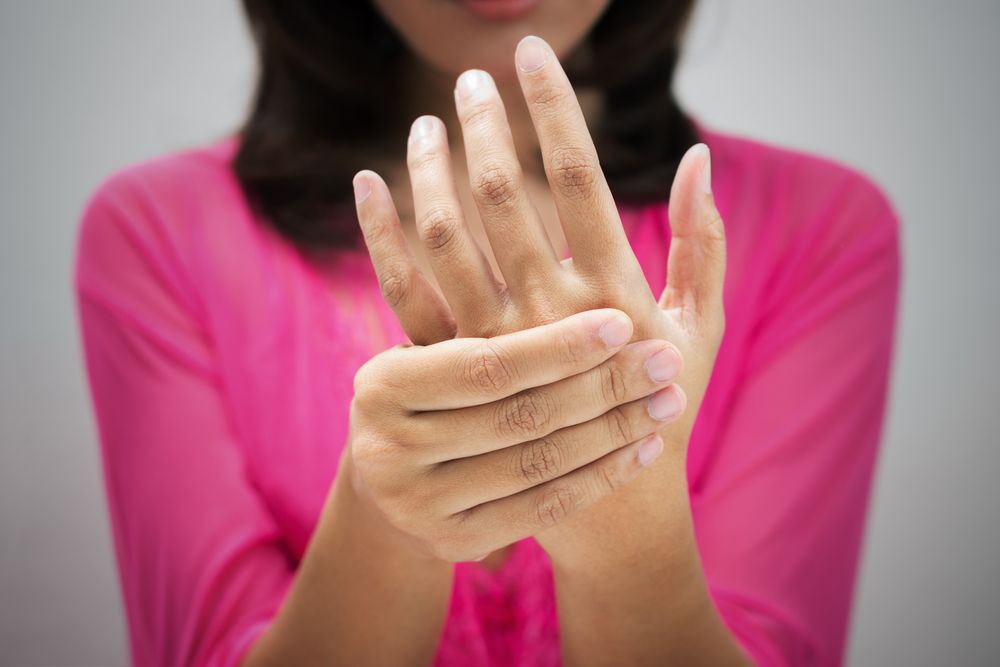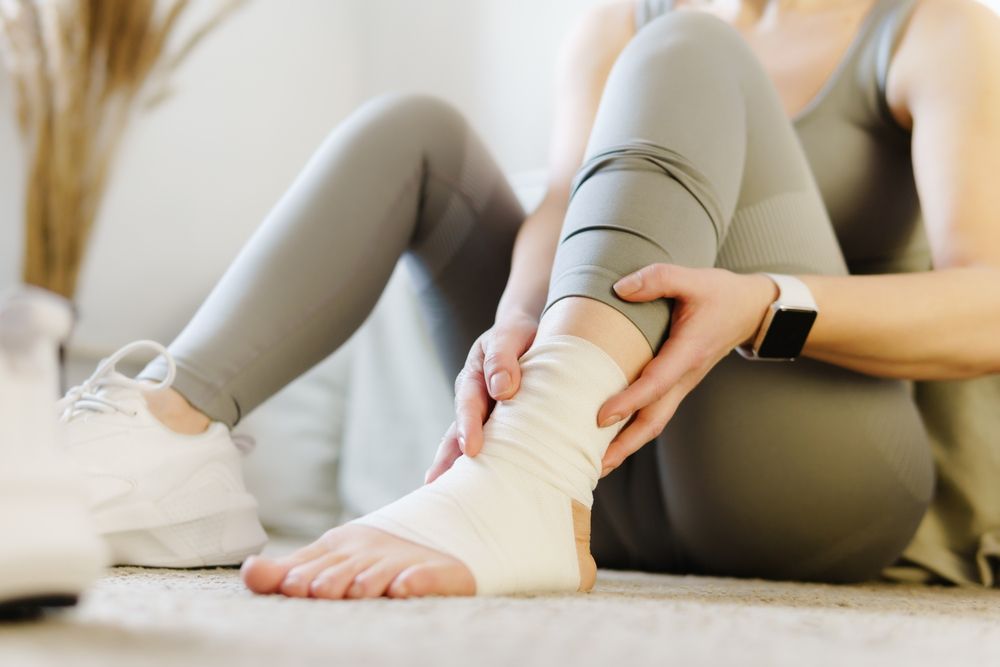What is Extensor Tendonitis?
Workout Injuries, Sports Medicine

Do your hands or feet ache? It could be extensor tendonitis.
About 4,000 tendons run through your body. These strong but flexible tissues connect muscle to bone, enabling you to freely move your joints. Your extensor tendons stretch along the top of your hands and feet, giving you the ability to lift your fingers and toes as well as flex your ankles and wrists. But as with any other tendon, your extensor tendons can become inflamed and irritated from overuse, causing a condition known as extensor tendonitis.
A common orthopedic ailment, extensor tendonitis typically results from repetitive motions that strain the tendons in the hands and feet. People who stand all day or use their hands in their jobs, like landscapers and typists, stand the greatest risk of this type of tendonitis. Wearing tight-fitting shoes or running uphill can also cause extensor tendonitis. Although not considered a serious orthopedic issue, extensor tendonitis can be painful and restrict your daily movements. So, it’s important to know the signs of the condition so you can treat it.
How do you know you have extensor tendonitis?
Pain radiating from the top of your hands or feet that worsens when you use those joints is the first sign of extensor tendonitis. You may notice swelling or discoloration around the inflamed tendon. Extensor tendonitis in the hand may also cause tingling and numbness.
Although the symptoms are similar, extensor tendonitis is different from a stress fracture. While both conditions stem from overuse, a stress fracture occurs when the bones of the foot or hand become inflamed, which leads to tiny cracks in the bone. Extensor tendonitis is an inflammation of the tendon, not the bone.
How to treat extensor tendonitis
In the majority of cases, extensor tendonitis is a temporary condition, which can be treated with at-home remedies, such as:
The RICE method:
- Rest: Avoid the activity that causes the pain for a few days.
- Ice: Apply ice to the affected area for 15 minutes, four times a day.
- Compression: Wrap your hand or foot with an elastic bandage to reduce swelling.
- Elevation: Elevate your hand or foot above your heart.
To alleviate the pain, you can take over-the-counter nonsteroidal anti-inflammatories, such as Ibuprofen or aspirin. Switching to comfortable shoes loose around the top of your foot can also help reduce the pain. How long it takes to recover depends on the severity of the tendonitis. But it shouldn’t take more than a few weeks with proper treatment and rest.
However, if the pain doesn’t resolve in a few days with rest and at-home treatments, see your doctor. He will perform a physical examination and may order imaging tests, such as an X-ray or MRI, to rule out other conditions or injuries.
To strengthen the muscles around the tendon and increase your range of motion, physical therapy may be prescribed. Corticosteroid injections can reduce inflammation and pain.
Rarely is surgery done to treat extensor tendonitis. If the pain persists, your doctor can perform a dry needling, a procedure that involves inserting a needle into the tendon to activate healing. A tendon that has nearly separated from the bone will require surgery.
Preventing extensor tendonitis
- Even if you experience extensor tendonitis only for a short while, it can be extremely painful and interfere with your daily routine. To prevent the condition, take these measures:
- Stretch and warm up before your activity. Cool down and stretch afterward.
- Exercise regularly and follow the proper form when you do.
- Wear protective equipment, such as ankle or wrist sleeves.
- Get a pair of comfortable shoes, and don’t tie your shoelaces too tightly.
- Rest when you feel tired or experience intense pain. Don’t try to work through the pain.
Visit the Center for Sports Medicine
As a leading center for sports medicine, All Sports Physical Therapy can diagnose your condition and get you on the path to recovery. We use state-of-the-art diagnostic tools and will prescribe the best treatment for your condition, whether it’s extensor tendonitis or another sports medicine issue. Contact us for a consultation.



